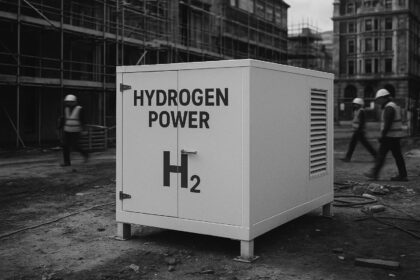The UK government has officially withdrawn support for the ambitious Morocco-UK Power Project, a $34 billion venture led by Xlinks to deliver renewable energy via a 3,800 km subsea cable. Citing economic, security, and geopolitical concerns, ministers have shifted focus to bolstering domestic renewable generation, ending hopes of powering over seven million homes from North African solar and wind resources.
The UK government has officially terminated its support for the ambitious $34 billion Morocco-UK Power Project, a venture spearheaded by British clean energy company Xlinks. The project aimed to supply renewable solar and wind energy to the UK by laying over 3,800 kilometers of high-voltage subsea cables from Morocco’s Guelmim-Oued Noun region to Devon in southwest England. Designed to generate enough electricity to power more than seven million UK homes, this intercontinental link would have accounted for up to 8% of the UK’s electricity needs by delivering a steady baseload of 3.6 gigawatts, derived from a total of 11.5 gigawatts of combined solar and wind capacity in Morocco, complemented by battery storage.
Despite substantial progress, including the clearance of environmental permits and plans to commence construction as soon as 2027, the UK government chose to withdraw due to concerns over economic alignment, delivery risks, and strategic energy security considerations. Energy Minister Michael Shanks articulated that the government no longer views the project as serving the UK’s national interest, emphasizing a strategic pivot towards “homegrown power” and domestic renewable investments which promise greater economic and security benefits. This marks a significant policy shift from the previous administration, which had designated the project as one of national significance.
The cancellation follows extensive investment in preliminary work, with over £100 million already spent on development and feasibility studies supported by major energy firms including TotalEnergies, Octopus Energy, TAQA, and GE Vernova. Xlinks had attracted strong lender interest for the construction phase, underlining the project’s commercial viability prior to the government’s decision. However, the absence of a government-backed contract for difference, which would guarantee a minimum electricity price, made securing long-term investment more challenging. The government cited concerns over the project’s complexity, the unprecedented length of subsea transmission, geopolitical risks tied to reliance on a non-European partner, and the potential lack of direct benefits to the UK supply chain.
Xlinks’ Chairman, Dave Lewis, expressed profound disappointment at the decision, describing it as “bitterly disappointing” and asserting that the project offered a faster and more affordable route to renewable energy compared to alternatives like nuclear power. Lewis indicated that despite the setback, the company is exploring other avenues to unlock the project’s potential, possibly focusing on other European markets such as Germany, thereby maintaining Africa’s potential role as a future green energy exporter to Europe.
This move reflects a broader trend in the UK’s energy strategy, with a focus on reducing reliance on international mega-projects in favour of bolstering domestic renewable generation capacity. The UK recently closed its last coal-fired power plant and is targeting a fully renewable electricity grid by 2030. Government officials emphasized that domestic investments promise more immediate economic benefits and align more closely with national energy security imperatives, even as global investment in renewable energy projects continues to surge, predicted to reach $3.3 trillion by 2025 worldwide.
The cancellation also resonates amid wider European interest in importing green energy from North Africa, where similar renewable energy export projects are underway in Tunisia and Egypt targeting countries like Italy and Greece. Morocco has been viewed as a strategic energy partner to Europe given its abundant solar and wind resources, but the UK’s decision signals wariness about the risks involved in such long-distance, cross-border energy infrastructure.
While the Moroccan government has not publicly responded to the UK’s withdrawal, the unresolved future of this monumental project highlights the complex interplay between political, economic, and technical factors shaping the global renewable energy landscape. The Morocco-UK Power Project was poised to be a groundbreaking step in transcontinental clean energy supply, but the UK government’s recalibration underscores the continuing challenges of balancing ambitious climate goals with national interests and investment risk management.
 Reference Map:
Reference Map:
- Paragraph 1 – [1], [5]
- Paragraph 2 – [1], [3], [4]
- Paragraph 3 – [1], [2], [3], [4]
- Paragraph 4 – [1], [2], [6]
- Paragraph 5 – [1], [2], [4]
- Paragraph 6 – [2], [3], [4]
- Paragraph 7 – [1], [2], [5]
Source: Noah Wire Services
- https://africa.businessinsider.com/local/markets/uk-terminates-dollar34b-subsea-cable-energy-agreement-in-north-africa/t5g3wqn – Please view link – unable to able to access data
- https://apnews.com/article/8ec20cbdf7632508003fae54a751895c – The United Kingdom has decided to withdraw its support from the $33 billion Morocco-UK Power Project, which aimed to transmit renewable energy through a 4,000-kilometer underwater cable from North Africa to Britain. Initiated by British company Xlinks in 2021, the project sought to supply up to 8% of the UK’s electricity needs by using Moroccan wind and solar energy. British energy officials cited delivery and security concerns as key risks, preferring to invest in alternative renewable projects deemed less risky. The UK, which has recently closed its last coal-fired power plant, is working toward generating all its electricity from renewable sources by 2030. Xlinks had already secured financial backing from France’s Total Energies and the Africa Finance Corporation and was pursuing a fixed price agreement. Despite the government’s withdrawal, Xlinks stated it would continue the project, arguing it offers a faster and cheaper renewable energy solution compared to options like nuclear power. The decision comes amid broader European interest in sourcing clean energy from North Africa, with similar projects underway in Tunisia and Egypt to supply power to European countries like Italy and Greece. Moroccan government officials have not commented on the UK’s decision.
- https://www.reuters.com/business/energy/britain-rejects-morocco-uk-green-energy-cable-project-2025-06-26/ – The British government has decided not to support the $34.39 billion Morocco-UK Power Project, which aimed to supply renewable energy from the Sahara to the UK via the world’s longest subsea cable. The project, led by Xlinks, involved a 3,800 km high-voltage direct current cable from Morocco to southwest England and was expected to power up to seven million UK homes. Despite receiving over £100 million in development funding from major energy firms including TAQA, Total Energies, and Octopus Energy, and strong lender interest for construction, the government concluded that domestic renewables offer better economic benefits and better align with its strategic goal of fostering homegrown power. Energy minister Michael Shanks stated the project does not serve the national interest and no longer aligns with decarbonization goals. Xlinks expressed strong disappointment, noting the project’s former designation as nationally significant by the previous Conservative administration and confirmed its intention to seek alternative paths to realize the project.
- https://www.ft.com/content/a4bd1adb-8ea2-42ee-b421-796e0383356a – The UK government, under Energy Secretary Ed Miliband, has rejected the £24 billion Morocco-UK Power Project, which aimed to transmit solar and wind energy from Morocco to the UK through a 3,800km subsea cable. The project, managed by Xlinks and backed by companies like TotalEnergies and Octopus Energy, was expected to supply 8% of the UK’s electricity, powering over 7 million homes. However, the Department for Energy Security and Net Zero cited high delivery and security risks, questionable economic value, lack of benefits to the UK supply chain, and increasing geopolitical dangers as reasons for the decision. This marks a shift from the previous Conservative government’s support in 2023, when it recognized the project as of national significance. Despite the developers proposing a competitive fixed price for electricity, concerns over technical feasibility and regulatory complexities also contributed to the rejection. Xlinks expressed disappointment but plans to explore alternative avenues to realize the project’s potential. The UK government will instead focus on developing domestic renewable energy sources.
- https://en.wikipedia.org/wiki/Xlinks_Morocco%E2%80%93UK_Power_Project – The Xlinks Morocco-UK Power Project is a proposal to create 11.5 GW of renewable generation, 22.5 GWh of battery storage and a 3.6 GW high-voltage direct current interconnector to carry solar and wind-generated electricity from Morocco to the United Kingdom. Morocco has been hailed as a potential key power generator for Europe as the continent looks to reduce reliance on fossil fuels. If built, the 4000km cable will be the world’s longest undersea power cable, and would supply up to 8% of the UK’s electricity consumption. The project is projected to be operational within a decade. The proposal was rejected by the UK Government in June 2025.
- https://www.bairdmaritime.com/marine-projects/marine-infrastructure/britain-walks-away-from-34-billion-morocco-uk-renewable-energy-subsea-link-project – Britain has rejected a £25 billion ($34.39 billion) Moroccan ‘renewable energy’ project that would have used solar and wind power from the Sahara to supply up to seven million UK homes. The British government, which is aiming to largely ‘decarbonise’ its electricity sector by 2030, said on Thursday it believed domestic projects could offer better economic benefits. ‘The government has concluded that it is not in the UK national interest at this time … ,’ energy department minister Michael Shanks … . He also said the project did not … government’s mission to build homegrown power … . Xlinks’ Morocco-UK power … ‘renewable energy’ via what would have been the … . The plan involved building 3, … . The company had been seeking a guaranteed … . Xlinks chair, former Tesco chief … . ‘Over £100 million ($137.38 million) … ,’ he said in an emailed statement. ‘We are now working to unlock the … ,’ Lewis said. The project had originally been designated by … ‘national significance’ but faced funding and regulatory hurdles. The early investors in the project included … , Total Energies and Octopus Energy but the … .
- https://en.wikipedia.org/wiki/PEACE_Cable – PEACE Cable, which stands for Pakistan and East Africa Connecting Europe, is a submarine cable project designed to facilitate data transmission between Asia, Europe, and Africa. It is owned by Peace Cable International, a subsidiary of Hengtong Group. The 15,000 km cable system is deployed along the seafloor of the Indian Ocean, the Red Sea and the Mediterranean Sea, with plans to extend the cable length to 25,000 km. It is based on WSS ROADM technology with a design capacity of 24 Tbit/s per fiber pair. The cable entered service and became fully operational in December 2022. The main trunk connects Pakistan, Kenya, Egypt, Singapore and France but there are also branches to the Maldives, Malta, Cyprus, the Seychelles, Djibouti, Saudi Arabia and Somalia.
Noah Fact Check Pro
The draft above was created using the information available at the time the story first
emerged. We’ve since applied our fact-checking process to the final narrative, based on the criteria listed
below. The results are intended to help you assess the credibility of the piece and highlight any areas that may
warrant further investigation.
Freshness check
Score:
10
Notes:
The narrative is current, with the UK government’s decision to terminate the Morocco-UK Power Project announced on June 26, 2025. ([reuters.com](https://www.reuters.com/business/energy/britain-rejects-morocco-uk-green-energy-cable-project-2025-06-26/?utm_source=openai))
Quotes check
Score:
10
Notes:
Direct quotes from Energy Minister Michael Shanks and Xlinks Chairman Dave Lewis are consistent with their statements in recent reports. ([reuters.com](https://www.reuters.com/business/energy/britain-rejects-morocco-uk-green-energy-cable-project-2025-06-26/?utm_source=openai))
Source reliability
Score:
10
Notes:
The narrative originates from Business Insider Africa, a reputable news outlet known for its coverage of African business and economic developments.
Plausability check
Score:
10
Notes:
The claims align with recent developments in the energy sector, including the UK’s focus on domestic renewable energy projects and the challenges faced by large-scale international energy initiatives. ([reuters.com](https://www.reuters.com/business/energy/britain-rejects-morocco-uk-green-energy-cable-project-2025-06-26/?utm_source=openai))
Overall assessment
Verdict (FAIL, OPEN, PASS): PASS
Confidence (LOW, MEDIUM, HIGH): HIGH
Summary:
The narrative is current, with direct quotes matching recent reports from reputable sources. The claims are plausible and consistent with known developments in the energy sector, indicating a high level of credibility.













